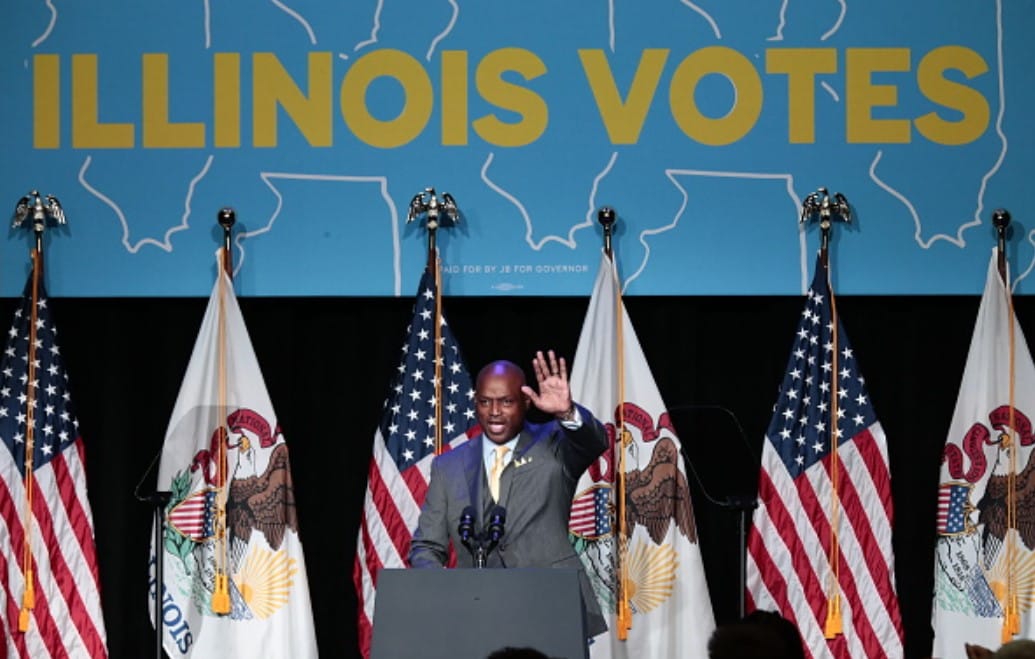Lame-duck Illinois lawmakers vote themselves a 16% raise
Not two years into his role as House Speaker, Chris Welch is facing heavy criticism for his lack of transparency and secretive house actions such as this week's unheard of 16% raise to Illinois legislators during a lame-duck session.

By JOHN O'CONNOR | AP Political Writer
SPRINGFIELD, Ill. (AP) — Illinois House Democrats working in a lame-duck session left town for a weekend break Friday night — but not before voting on plans to give themselves a pay raise of nearly 16%.
Legislation authorizing funds to be added for spending needs halfway through the state's fiscal year includes an $11,655 raise in base pay, to $85,000.
It won approval from the Democratic-controlled House by a 63-35 vote. Twenty members, many of whom had already departed for the weekend, did not vote. The lame-duck session ends Tuesday, a day before the 103rd General Assembly is sworn in.
A raise of 15.9% is unheard of in recent times. Secretive House action in 2019 inserted a 2.4% cost-of-living adjustment to increase base salaries to about $67,800.
It was the first increase since 2008. Since then, lawmakers have approved automatic cost of living adjustments, providing raises in 2021 and 2022, with the next one coming July 1, noted Rep. Mark Batinick, a Republican from the southwest Chicago suburb of Plainfield.
“Wages aren't keeping up with inflation, but we've locked in inflation bumps each July, and now, late at night, with no one here, we've ensured our pay goes up well beyond what the private sector sees," Batinick, who's retiring from the House, told The Associated Press after the vote.
While the base for legislators starting in the 103rd General Assembly on Wednesday will be $85,000, most members will make more — the minimum being $12,000 more for a committee chairmanship up to $16,000 for the House speaker, Senate president and the minority leaders of each chamber.
The action occurred quickly, when the House reconvened after a long break Friday. House Majority Leader Greg Harris, a Chicago Democrat sponsoring what's known as a budget implementation bill, substituted that measure for a Senate bill ready for House action. As such, it needed no committee hearing or other public exposure.
The process seems to conflict with the open, transparent legislative business plan promised by House Speaker Emanuel “Chris” Welch when he took over two years ago from the disgraced Michael Madigan.
Welch spokeswoman Jaclyn Driscoll bristled at the suggestion.
“You can't get a more transparent vote than a public one in the House,” Driscoll said.
The measure includes necessary additions to the budget and some previously promised, such as $850 million for the so-called Rainy Day Fund. It has $460 million to support the state's hospitals, $400 million for attracting business to the state and changes child support distribution by eliminating the state taking a portion for administrative costs and instead sending the entire amount to the child.
“This bill has literally not seen the light of day,” Batinick, the GOP floor leader, said during debate shortened, he said, by all the Republicans wishing a say on the legislation allowing him to speak for them. “You may think that the public isn’t going to notice. Seems like we’re doing our best to make it happen that way. But they will notice.”
It also includes pay raises for all constitutional officers and most directors of agencies under Democratic Gov. J.B. Pritzker.

The Chicago Journal needs your support.
At just $20/year, your subscription not only helps us grow, it helps maintain our commitment to independent publishing.
If you're already a subscriber and you'd like to send a tip to continue to support the Chicago Journal, which we would greatly appreciate, you can do so at the following link:
Send a tip to the Chicago Journal






